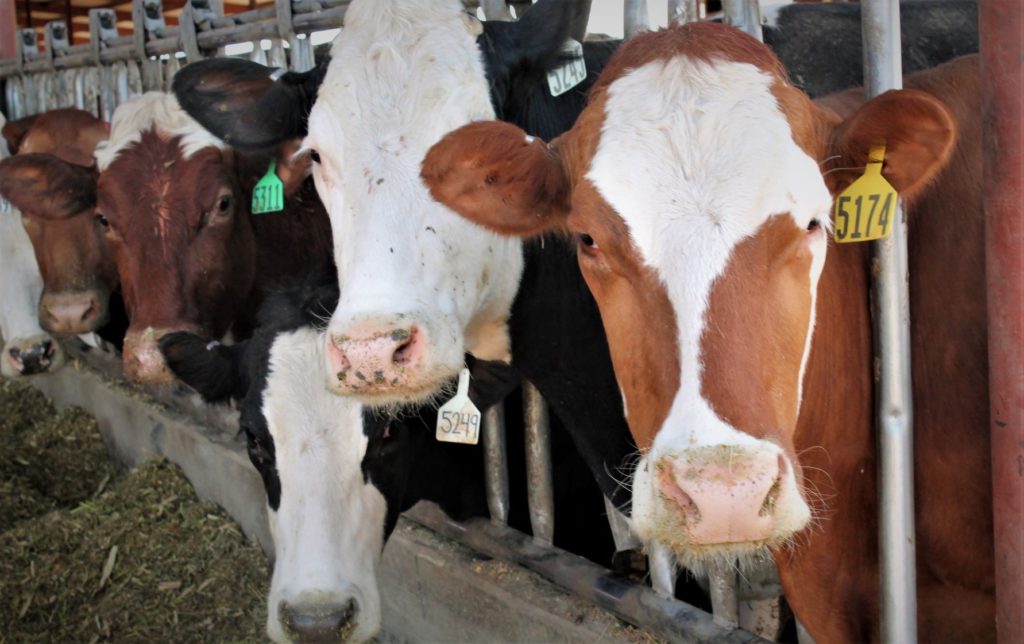A file photo of dairy cows in Cache Valley.
TAYLORSVILLE —The Utah Department of Agriculture and Food (UDAF) is making Utah dairy producers aware of a mysterious disease affecting dairy cattle in Texas and other states. UDAF is doing all it can to monitor the situation and is working with cattle industry groups to provide accurate information to producers and veterinarians.

There are no restrictions on cattle imports from affected states at this time. No cases of the disease have been reported in Utah dairy cattle.
The cause of this disease has not been determined yet, but, to date, dairies in Texas, Kansas, and New Mexico have reported cattle with the same or similar symptoms. This disease has only affected dairy cattle so far.
Diseased cattle show signs of a sudden drop in milk production, thickened colostrum-like milk, a drop in feed consumption, reduced rumen motility, tacky feces or diarrhea, and some fever. Some cows also developed pneumonia or mastitis.
Older cows appear to be the most severely affected, while dry cows and heifers (non-milk producing) do not appear to be affected. Instances of death in these cattle have been rare.
The Texas Animal Health Commission is working with the Texas A&M Veterinary Diagnostic Laboratory, producers, veterinarians, and the USDA to determine the cause of the disease.
All livestock producers should practice good biosecurity to avoid introducing diseases to their cattle. Biosecurity guidelines can be found for dairy cattle at securemilksupply.org and for beef cattle at securebeef.org. Producers should also work with their veterinarian on a herd health and vaccination program.
There is no known risk to public health. Under the Pasteurized Milk Ordinance, abnormal milk is not allowed to be sold for human consumption. In addition, all animals presented for slaughter receive a thorough examination to ensure that only safe and wholesome products enter the food chain.
Utah livestock producers or veterinarians with suspected cases of this disease should report them to the Utah State Veterinarian’s office at (801) 982-2235 or [email protected].

